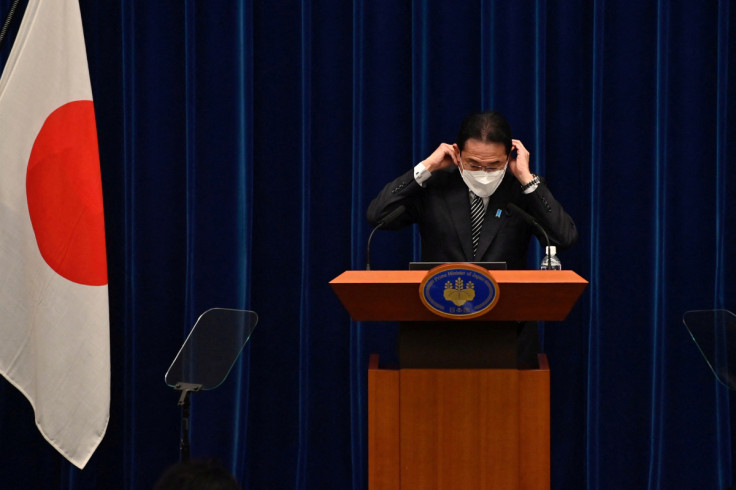Japan To Curb Electricity Costs Amid Weak Yen, Recession Risks, PM Says

Japan will take "unprecedented" measures to curb rising electricity bills for households and businesses as a weak yen fans inflation and global recession fears pose big risks to the economy, Prime Minister Fumio Kishida told parliament on Wednesday.
The government will compile another economic stimulus plan by the end of October, including a rare measure to directly ease the rise of electricity prices that are subject to abrupt price flare-ups, Kishida said, without giving specific details.
In the past, the government has paid subsidies to fuel wholesalers to keep gasoline prices low, but now policymakers are floating new ideas such as providing cash payouts and giving subsidies to utility firms to curb price hikes.
Faced with falling public approval rates, Kishida's ruling party is considering a fresh spending package worth at least $100 billion to address inflation.
"Rising energy and food prices due to Russia's invasion of Ukraine, coupled with a weak yen, and the fears of global economic slowdown are big risk factors to Japan's economy," Kishida said.
Consumer prices in Japan's capital Tokyo rose in September at the fastest pace since 2014, government data showed on Monday, highlighting the increasing burden for households from the yen's plunge to 24-year-lows, which is adding to already rising import costs.
To ease the pain of the cost-push inflation for everything from food and energy, Japanese policymakers are urging companies to raise wages, which is essential to kick-start a sustainable growth cycle of higher wages, greater consumer spending and business investment.
Four private-sector advisers on Kishida's top economic advisory panel urged the government to conduct policy to achieve real economic growth of 2-2.5%, in order to make it easier for big firms to implement the 2.07% wage hikes agreed by management and labour unions earlier this year.
It would help the output gap to narrow from the current 15 trillion yen ($103.85 billion), they said in a recommendation.
Analysts polled by Reuters see the economy expanding by 1.9% this fiscal year but slowing in 2023 as global demand softens.[ECILT/JP]
The advisers said the government should make wage hikes a condition for small firms to receive government support. They also said smaller firms, many of whom are contractors in supply chains, should pass on costs to their bigger clients.
Kishida said earlier on Wednesday it is important for Japan to link the weak yen to economic revitalisation through a recovery of inbound tourism, bringing companies back to the country and expanding agricultural exports, Kishida said.
When an opposition lawmaker asked about the Bank of Japan's (BOJ) ultra-easy policy that has helped fuel the yen's decline amid other global central banks' tightening, Kishida said specific monetary policy moves were up to the BOJ to decide.
($1 = 144.4400 yen)
© Copyright Thomson Reuters 2024. All rights reserved.



















